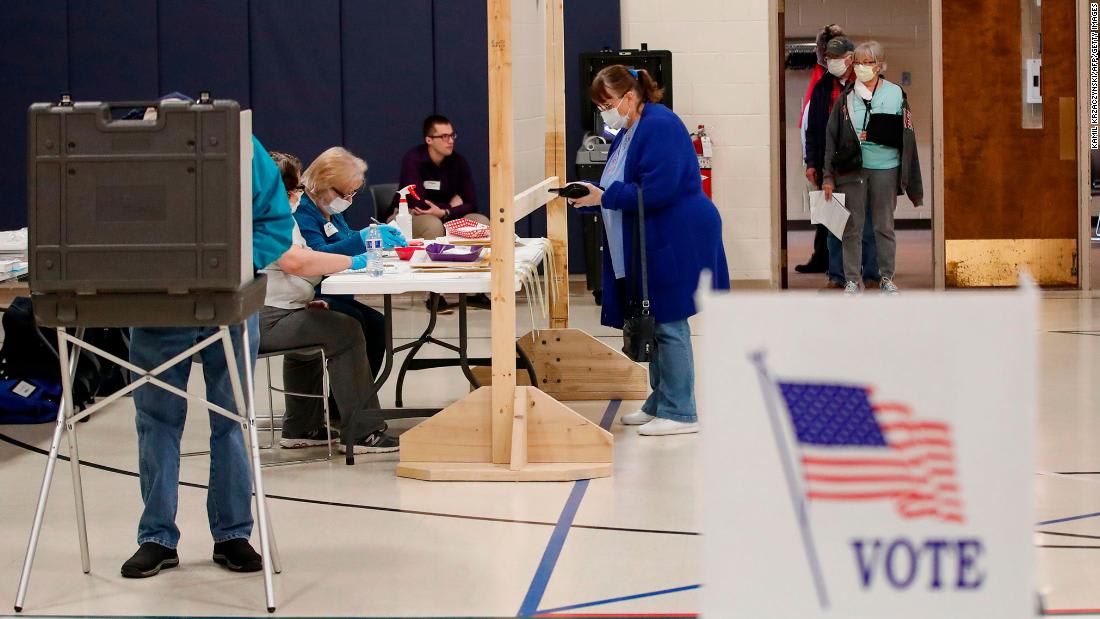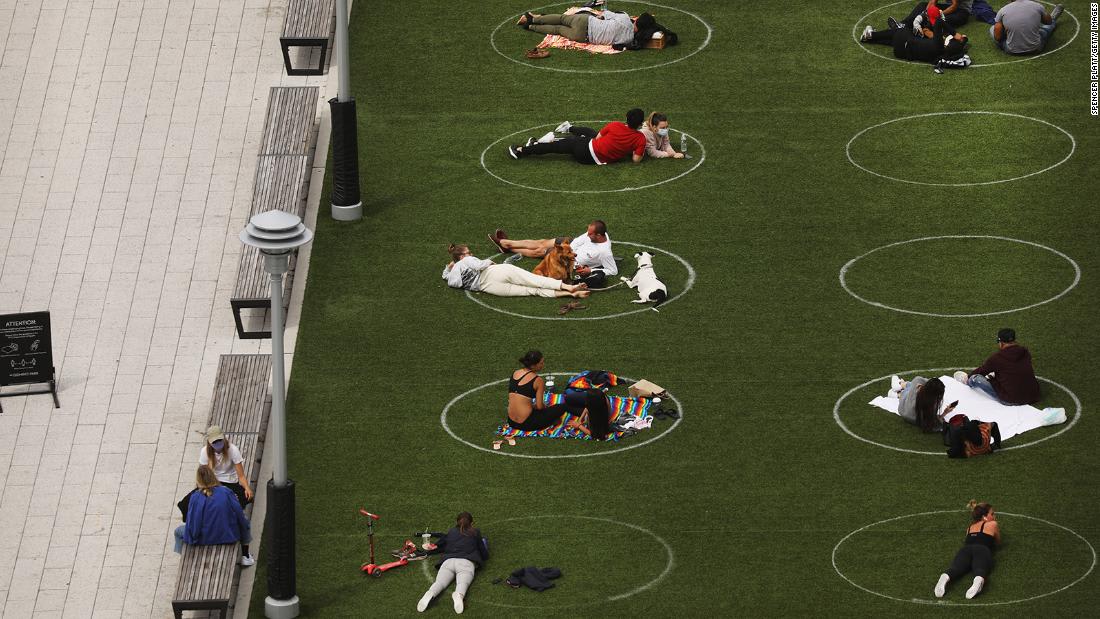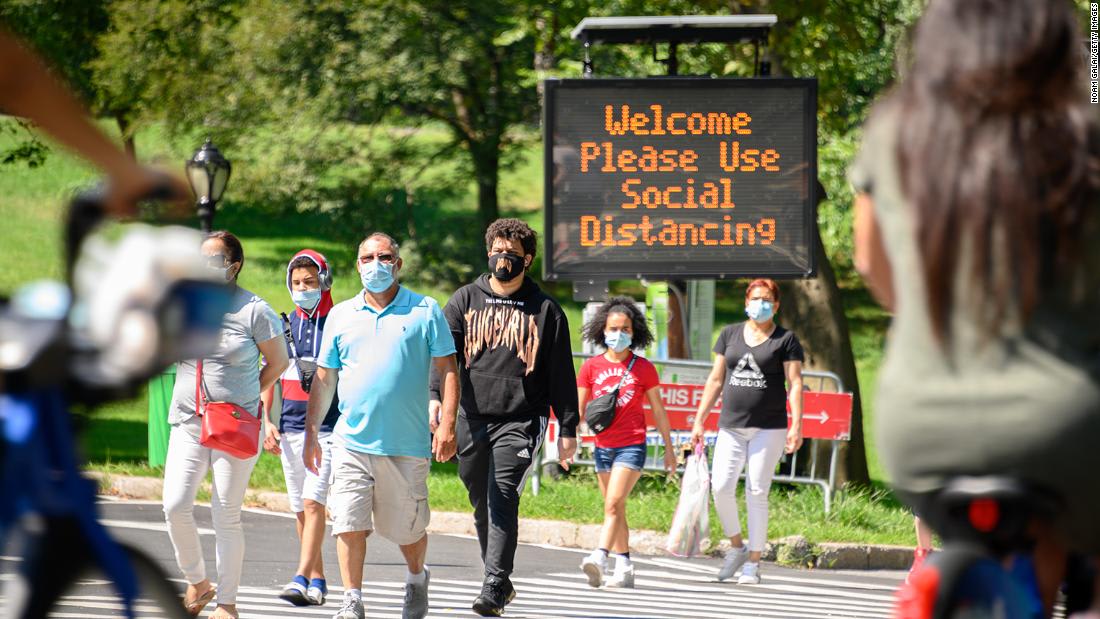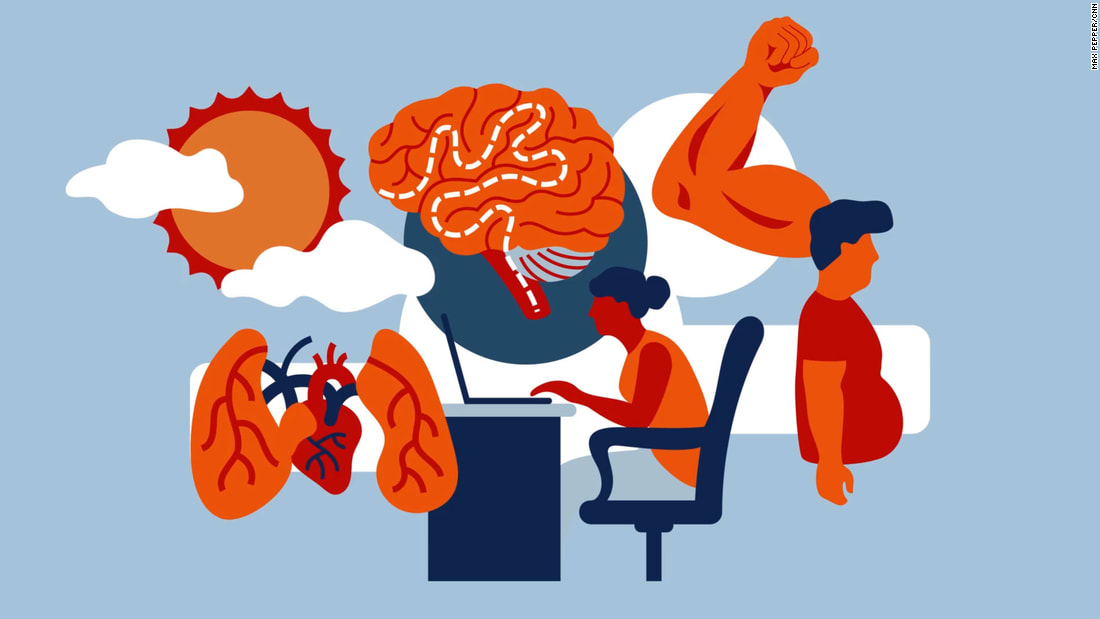1,700 students told to self-isolate for 2 weeks at UK university after 127 Covid cases are confirmed
From CNN's Niamh Kennedy
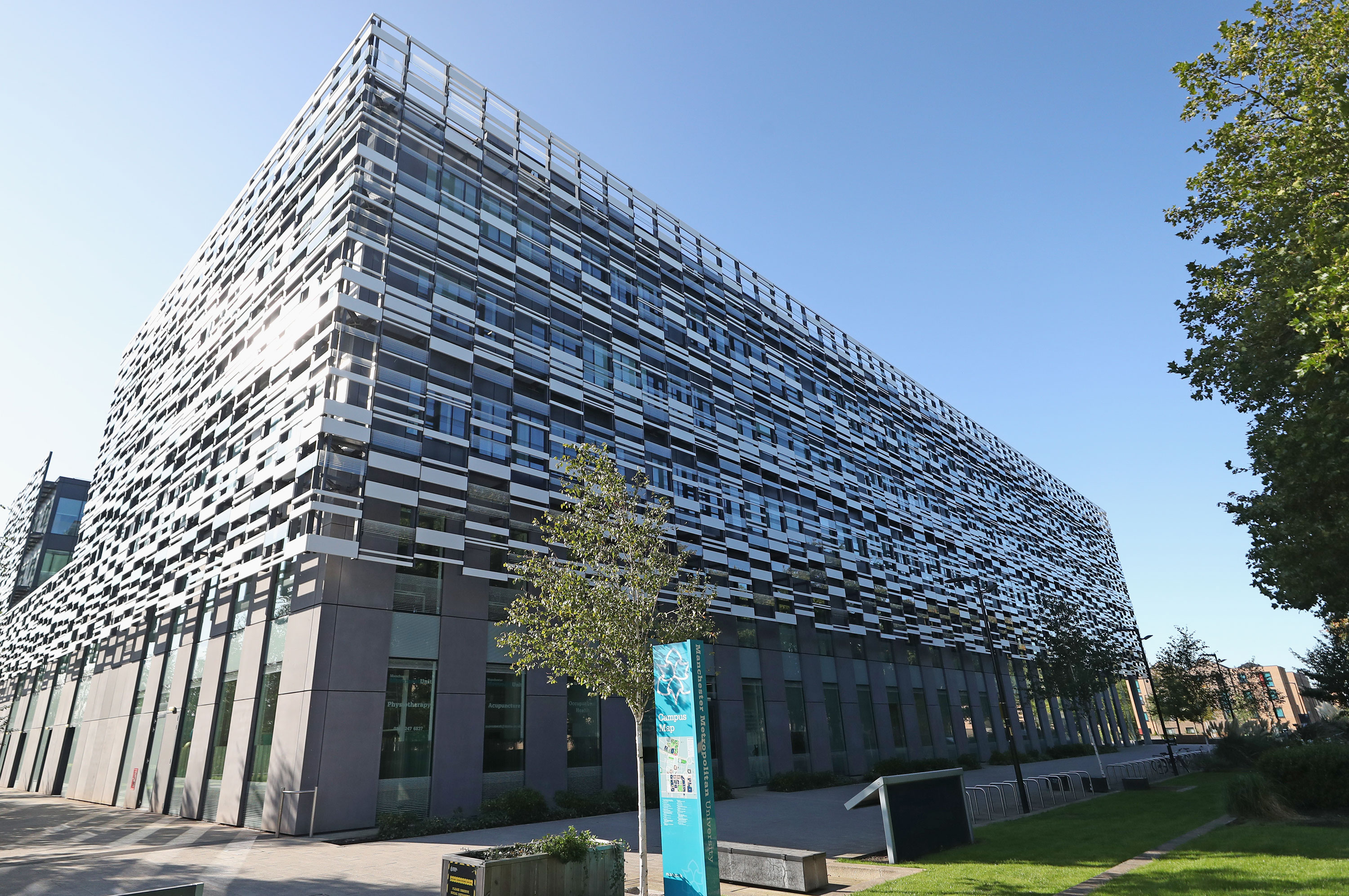 Manchester Metropolitan University's campus Peter Byrne/PA Images/Getty Images
Manchester Metropolitan University's campus Peter Byrne/PA Images/Getty ImagesAbout 1,700 students have been told to self-isolate at Manchester Metropolitan University in northern England or risk facing “disciplinary action,” after 127 Covid-19 cases were confirmed on campus, according to the university and local authorities.
Students living in two main dorms were asked via email on Friday night to self-isolate in their accommodation for 14 days regardless of whether or not they have symptoms.
A statement from Manchester City Council on Friday said a joint decision had been taken along with the university and Public Health England to “implement a local lockdown for student accommodation at the Birley campus and Cambridge Halls” in a bid to “stop the transmission of the virus among students and prevent it getting into the wider community.”
In a press release, city councillor Bev Craig acknowledged that the lockdown would “be difficult for all of the young people involved,” saying that the city council would be working with public services to “make sure that any of the students affected get the support they need.”
The university tweeted that it was working with local health authorities to help the students in the two dorms concerned. "If you are not directly affected, you MUST NOT try to visit friends who live in these halls," it added.
The move comes after students in Scotland were banned Friday from visiting pubs, restaurants and cafes this weekend, as several universities across the country report major outbreaks of infections.
Scottish First Minister Nicola Sturgeon said that although Scotland “will see campus cases continue to rise in the days to come” these measures “can help stem that flow.”
London police ask anti-lockdown protesters to disperse, say social distancing rules were broken
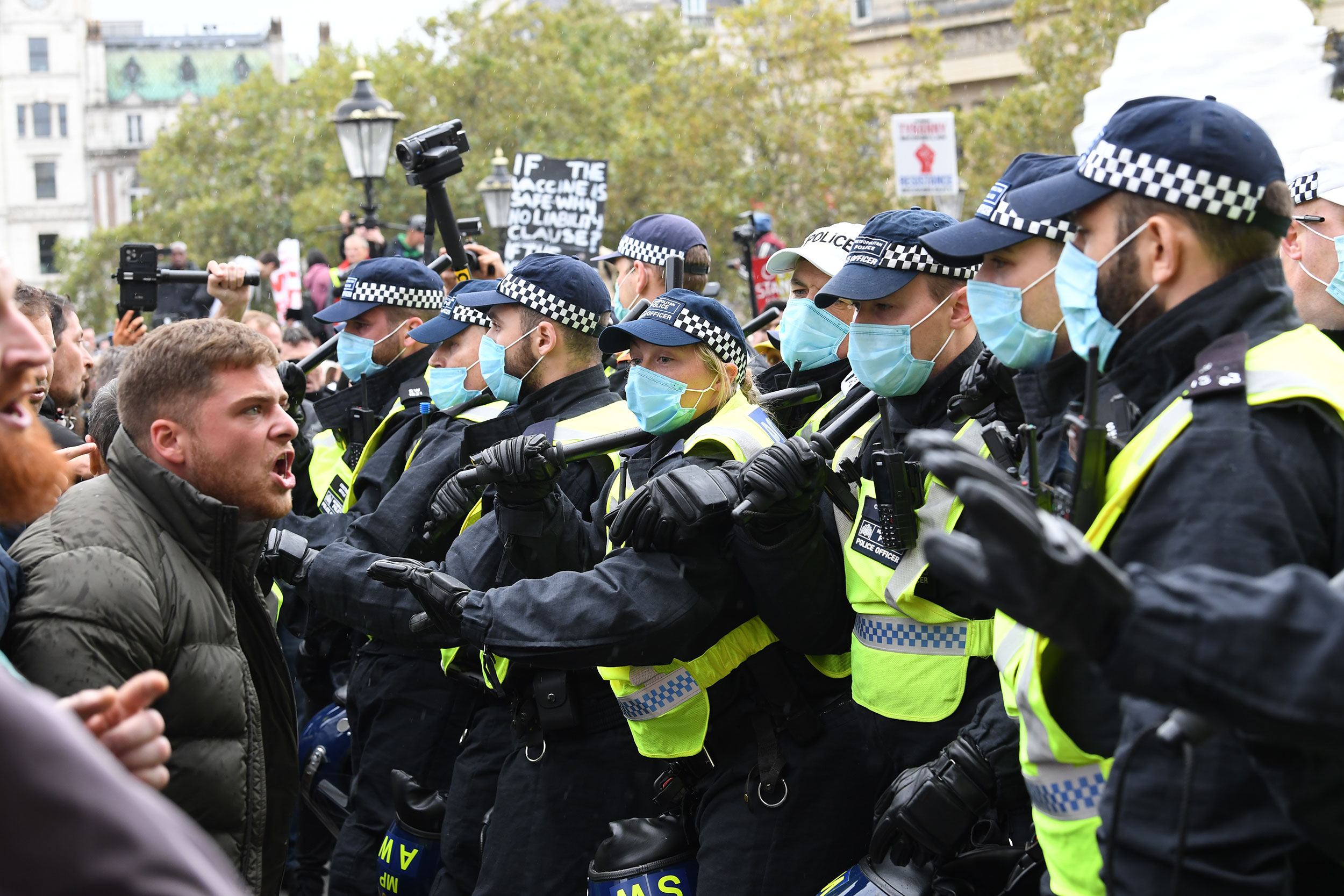 Police interact with demonstrators at an anti-lockdown protest at Trafalgar Square on September 26 in London. Stefan Rousseau/PA Images/Getty Images
Police interact with demonstrators at an anti-lockdown protest at Trafalgar Square on September 26 in London. Stefan Rousseau/PA Images/Getty ImagesPolice have told anti-lockdown protesters in central London's Trafalgar Square to disperse after they failed to follow the rules on social distancing.
Images from Trafalgar Square show large crowds of people packed together, with few if any face coverings to be seen. Protesters carried placards with slogans such as "No to mandatory vaccines" and "Where is the pandemic?"
"We want to be clear, this protest is no longer exempt from the regulations. We are asking those attending to disperse," the Metropolitan Police Service said on Twitter.
"Sadly, some officers have been injured while engaging with people."
While it is currently illegal in England for people to gather in groups of more than six, there is an exemption for protests. However, protest organizers must submit a risk assessment and comply with social distancing.
According to the police, those conditions have not been met.
"Crowds in Trafalgar Square have not complied with the conditions of their risk assessment and are putting people in danger of transmitting the virus," the force said.
"This has voided their risk assessment and we have informed the event organisers they are no longer exempt from the regulations."
Some protesters are now moving toward Hyde Park, police said.
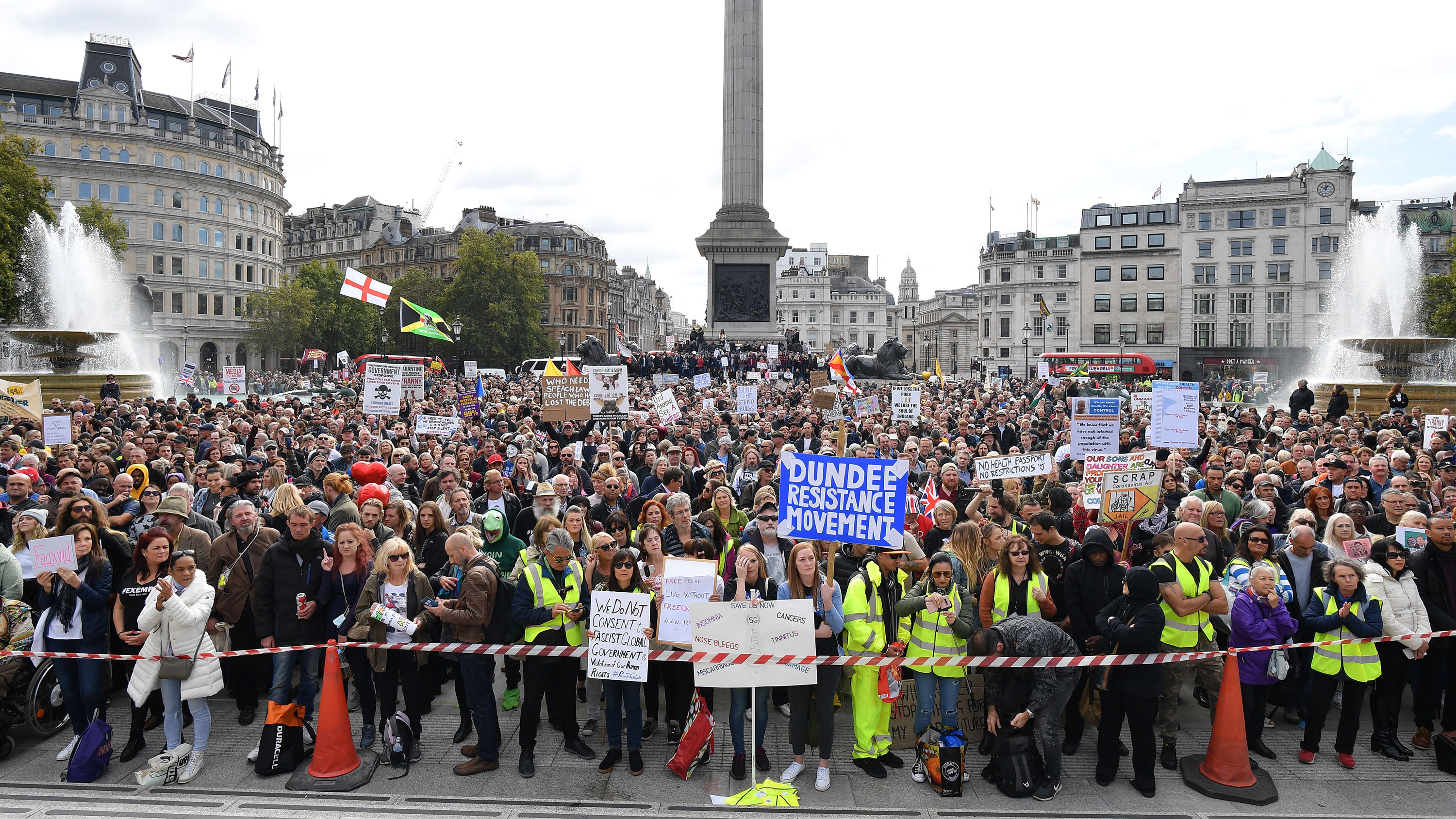 Protesters gather in Trafalgar Square for a rally against vaccination and government restrictions designed to fight the spread of the novel coronavirus, in London on September 26. Justin Tallis/AFP/Getty Images
Protesters gather in Trafalgar Square for a rally against vaccination and government restrictions designed to fight the spread of the novel coronavirus, in London on September 26. Justin Tallis/AFP/Getty ImagesKeeping up with the big movies that have been delayed by the coronavirus pandemic
From CNN's Frank Pallotta in New York
 "Black Widow," which was originally meant to be released in May, was pushed to November before being delayed to May 7, 2021. Marvel Entertainment
"Black Widow," which was originally meant to be released in May, was pushed to November before being delayed to May 7, 2021. Marvel Entertainment2020 is a lost year for the movies.
Hollywood, like many industries, has been devastated by the coronavirus pandemic. Movie theaters were forced to shut down for months, and have struggled to find an audience since reopening. Productions have stalled, and blockbuster releases have been rescheduled.
The year started with a surprising amount of promise, however. Sony's "Bad Boys For Life" and Paramount's "Sonic the Hedgehog" kicked off 2020 with unexpectedly strong box office returns. The schedule for the rest of the year included potential blockbusters like a new James Bond movie, a live action remake of "Mulan" and the return of the Ghostbusters.
But all of those films were either delayed, pushed to next year or skipped US theaters entirely because of the pandemic. This has left cineplexes with a bleak and uncertain future. (Track how box-office sales have been hit on our US recovery dashboard.)
With new films seemingly being shifted around every day, it's been hard to keep up.
Read more here on which movies are now scheduled to be released later this year and which have been moved to 2021.
US poll worker recruitment picks up as officials prepare for presidential election amid a pandemic
From CNN's Lauren Dezenski
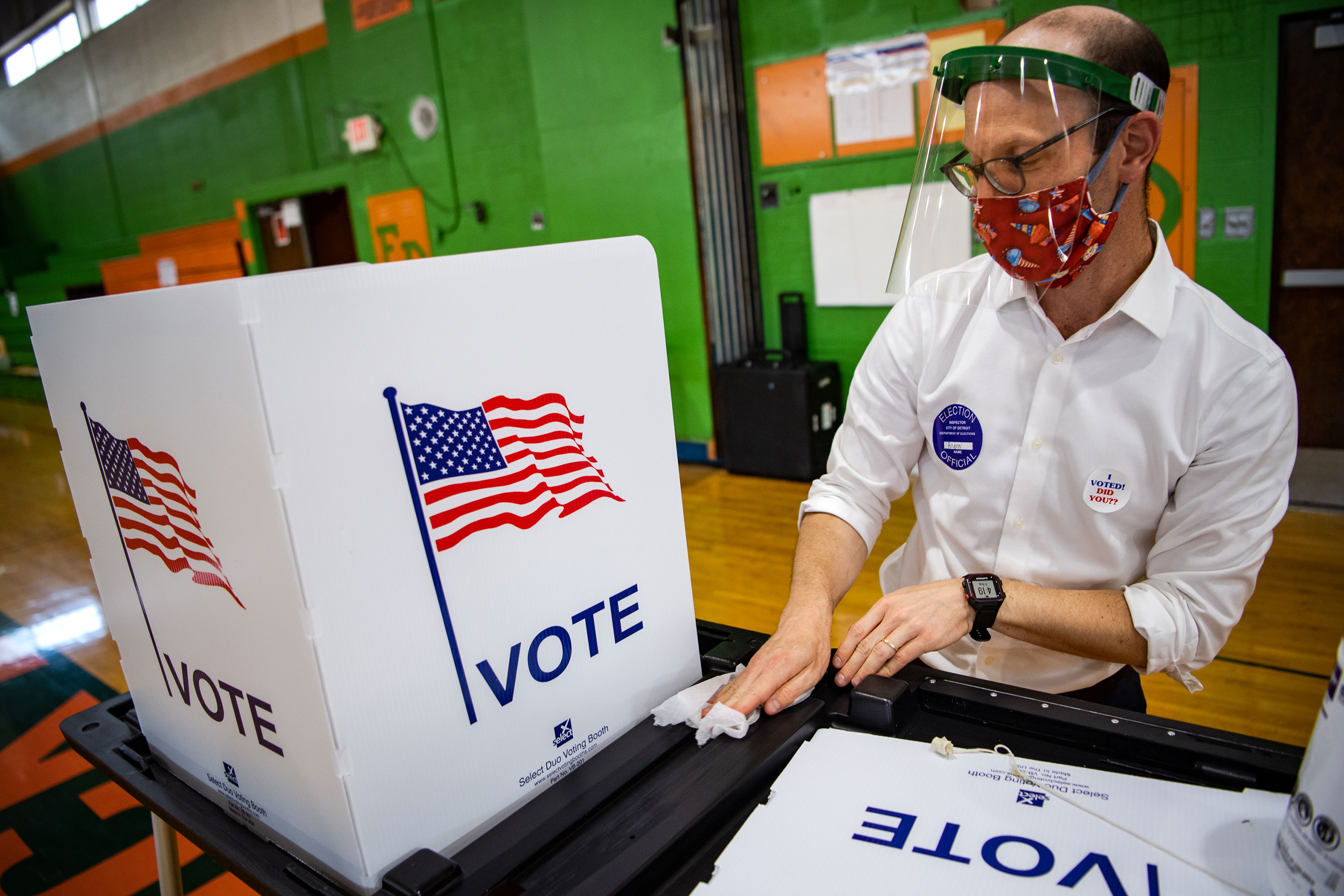 A volunteer disinfects a voting booth at a polling station during the Michigan Primary on August 4 in Detroit, Michigan. Salwan Georges/The Washington Post/Getty Images
A volunteer disinfects a voting booth at a polling station during the Michigan Primary on August 4 in Detroit, Michigan. Salwan Georges/The Washington Post/Getty ImagesAs more early voting sites open across the United States, election officials have faced a significant challenge: Staffing those sites with poll workers. And amid the coronavirus pandemic, the stakes are higher than ever.
"The simple answer is, if you don't have enough poll workers, you can't open polling locations," Ohio Secretary of State Frank LaRose told CNN.
During the 2016 election, nearly 1 million poll workers staffed voting locations across the country, according to the US Election Assistance Commission. And even before the pandemic, 65% of jurisdictions reported it was "somewhat difficult" or "very difficult" to attract enough poll workers. They also found more populous jurisdictions had a harder time recruiting.
Now, the public health threat from the pandemic combined with projected record turnout and CDC guidance to keep as many polling places open as possible has created a perfect storm -- and headache -- for election officials.
But with recruitment deadlines approaching, election officials are reporting that many people have answered the call. Across the country, they have reported a surge in poll worker sign-ups, assuaging some of the concerns building over the summer amid the pandemic.
On Friday, Power the Polls reported 500,000 sign-ups since the group began recruiting in June -- all people who want to serve as poll workers. The nonpartisan newly formed group's website helps users navigate at times complicated state and local election websites to connect them with election officials.
"We're going to keep charging right up until the election officials tell us they won't be taking any more people," Power the Polls' co-director Scott Duncombe told CNN.
Read more here:
5 common coronavirus myths and the science you need to know
From Dr. Sanjay Gupta, CNN Chief Medical Correspondent
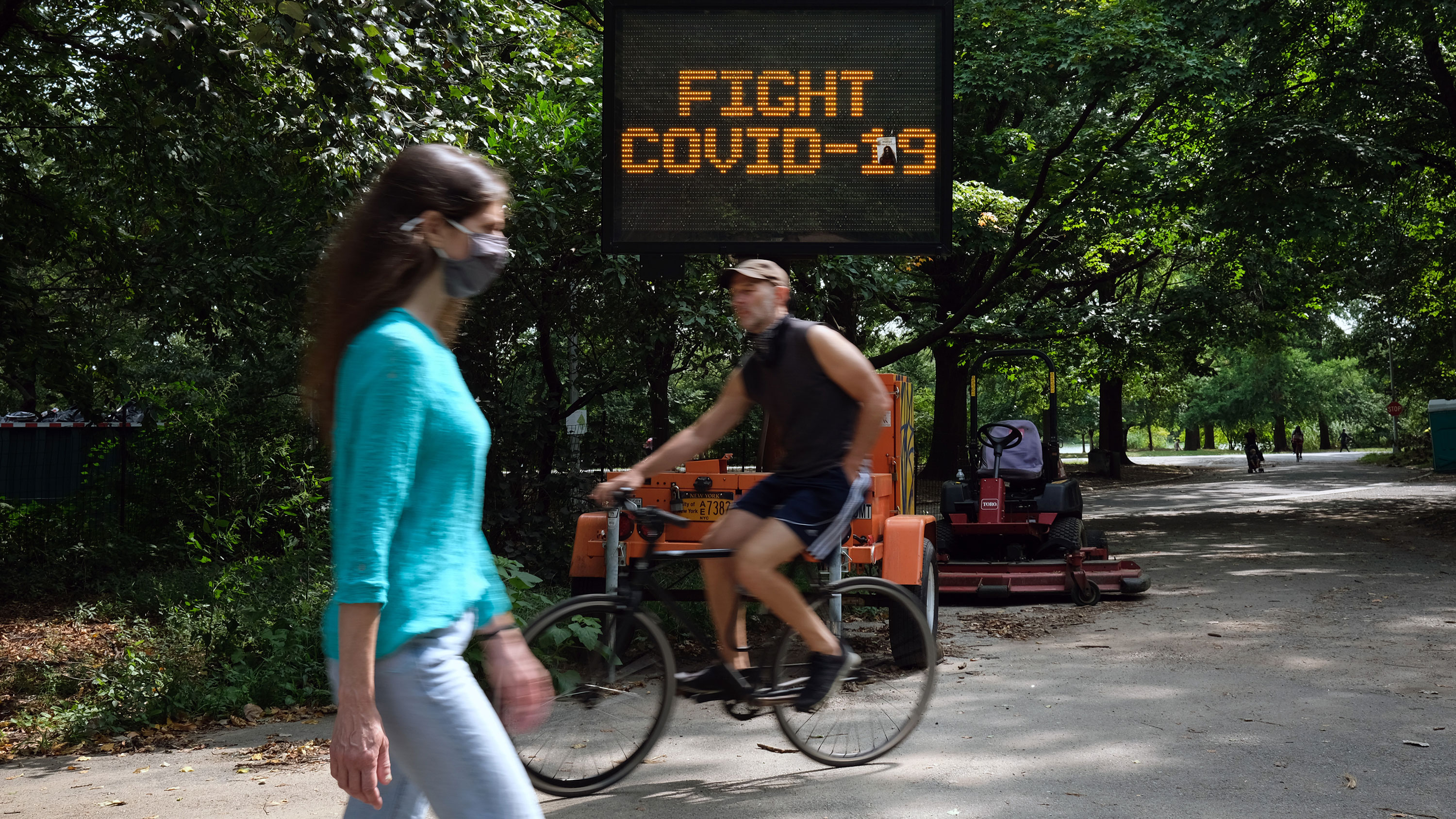 A sign at a public park instructs people to socially distance on September 14 in New York. Spencer Platt/Getty Images
A sign at a public park instructs people to socially distance on September 14 in New York. Spencer Platt/Getty ImagesSince the beginning of 2020, when we first started hearing about a new coronavirus, eventually dubbed SARS-CoV-2, our understanding of what it is, how it infects people, who it infects and how we can protect ourselves have all evolved as our knowledge has grown.
But that evolution -- and the changing information and recommendations that accompanied it -- has also sown confusion, and in some cases, deliberate disinformation.
"Just as Covid-19 has spread around the world, so too have rumors, untruths and disinformation. And they can be just as dangerous," Tedros Adhanom Ghebreyesus, director-general of the World Health Organization (WHO), said on Wednesday.
Mis- or disinformation has led to people harming themselves based on falsehoods, self-medicating with toxic chemicals or dangerous medications and not taking the precautions that they should be taking, Tedros said. It has also affected our trust in institutions and health systems, which could result in people turning their backs on new treatments and vaccines if they don't have confidence in them.
Tedros said WHO and its partners are "calling on all countries to put in place national action plans to promote science-based health information and to combat misinformation."
To find out some of the common myths and misconceptions floating around, and the state of the science as we understand it to date, read the full story:
US reports highest new case total for a single day since mid-August
From CNN's Chuck Johnston
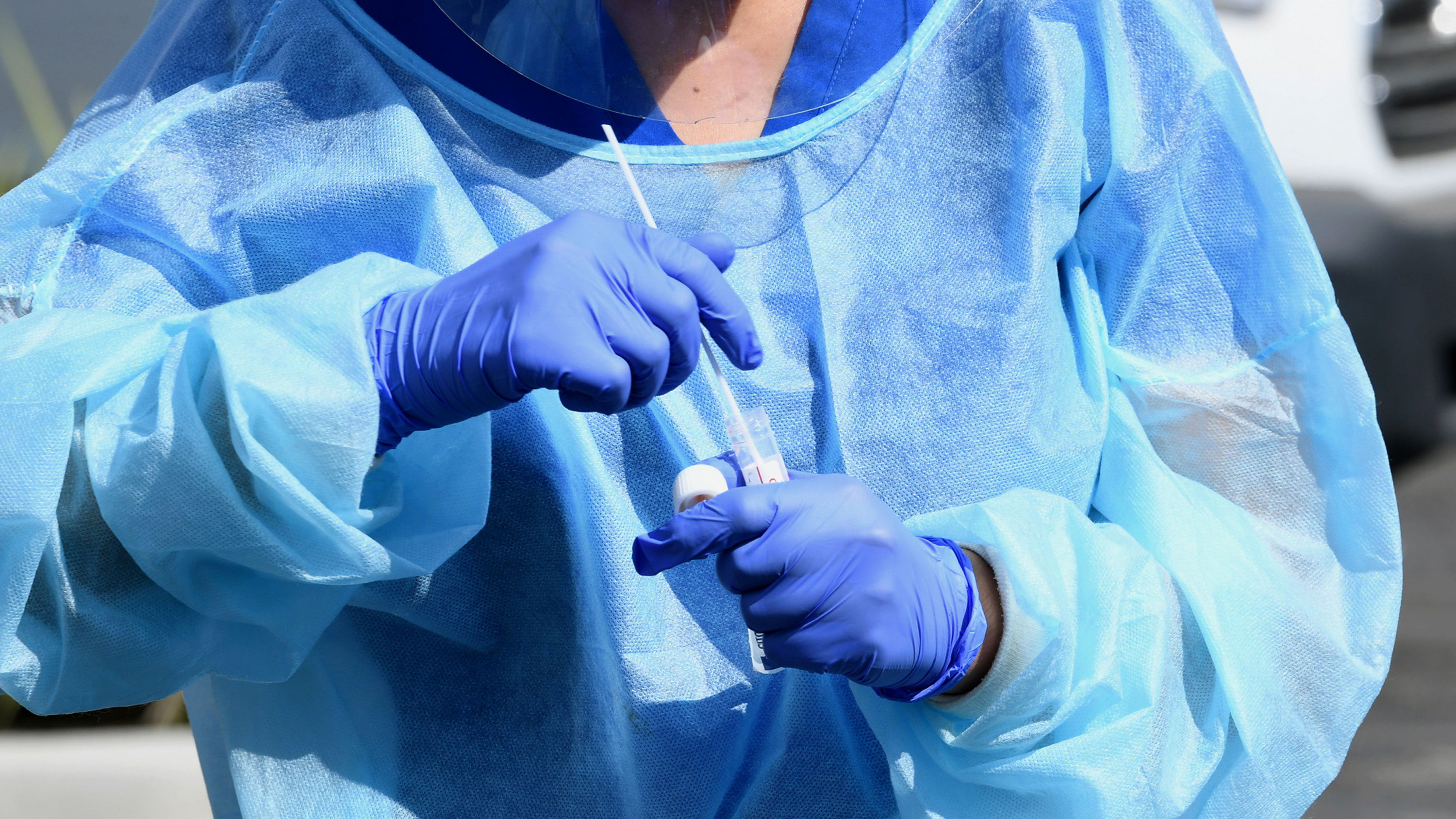 A Mend Urgent Care worker performs drive-up Covid-19 testing on September 18 in Los Angeles, California. Kevin Winter/Getty Images
A Mend Urgent Care worker performs drive-up Covid-19 testing on September 18 in Los Angeles, California. Kevin Winter/Getty ImagesThere were 55,054 new coronavirus cases reported across the United States on Friday, according to Johns Hopkins University.
That’s the highest single-day reporting of new cases since August 14, when the US reported 64,350 new cases in 24 hours.
The seven-day average of new cases reported in the US for the past week was 44,111, according to data from JHU.
For the latest Johns Hopkins University US numbers, check here. CNN’s map, using JHU data, continues to refresh every 15 mins.
Less than a fifth of Brits self-isolated after showing key Covid-19 symptoms -- preliminary research
From Zahid Mahmood and Schams Elwazer in London
Preliminary research indicates less than half of the British public could name the key Covid-19 symptoms and fewer than one in five self-isolated after experiencing symptoms, despite government guidelines.
The pre-print study from King’s College London found that around 70% of people said they “intended to self-isolate if they were to develop key symptoms," but in fact only 18.2% of those who developed symptoms in the last week actually reported self-isolating.
The study -- which has yet to be published or peer-reviewed -- collected data from 30,000 people in the United Kingdom between March and August. It found “just under half of the sample were able to name the key Covid-19 symptoms as being a persistent new onset cough, fever or loss of sense of taste or smell.”
Released on the university’s website Friday, the findings coincided with the UK reporting its highest single-day infection rise since the pandemic began -- with 6,874 new infections, bringing the total number of confirmed cases to 423,326.
“The UK public have good intentions to adhere to a test, trace and isolate system but, when they do develop symptoms, there are a number of factors that affect their decisions and their behaviour,” said James Rubin, an author of the study from King’s College London.
The study indicated “financial constraints and caring responsibilities are common barriers to adherence,” Rubin added.
Men, young people, those with children, key workers, those with lower socio-economic status and those experiencing greater economic hardship during the pandemic were less likely to adhere to protective measures, the research indicated.
The results suggest adherence could be improved by clearer public health messaging and financial assistance to reduce the pressures of self-isolation, the study's authors added.
Experts are warning of a coming surge of Covid-19 cases in US
From CNN's Christina Maxouris
The US could see an explosion of Covid-19 cases as fall and winter set in, one expert says, joining a chorus of health officials who have warned about the challenges of the coming months.
Two things will likely help drive that expected winter surge, according to Dr. Chris Murray, director of the University of Washington's Institute for Health Metrics and Evaluation (IHME).
"First, as case counts have come down in some states, we tend to see that people become less careful, they tend to have more contact," he said. "But then the most important effect is the seasonality of the virus, that people go indoors, transmission happens more."
According to the IHME model, the country is seeing about 765 daily deaths from Covid-19, but that number could jump to 3,000 daily deaths by late December.
More than 203,000 Americans have already died from the virus since the start of the pandemic and more than 7 million have been infected, according to Johns Hopkins University. At least 24 states are now reporting a rise in new cases compared to the previous week, mostly across the US heartland and Midwest, according to data from Johns Hopkins.
Murray's warning is one that's been given by several other health officials in recent months. Over the summer, the US Centers for Disease Control and Prevention director warned the fall and winter could be "one of the most difficult times that we experienced in American public health."
And this week, leading infectious disease expert Dr. Anthony Fauci urged American cities and counties to prepare for "the challenge" of fall and winter.
Read more here:
This is what happens to your body over months in isolation
From CNN's Scottie Andrew
Since the pandemic officially began in March, we've been told staying home is the best way to avoid catching Covid-19. And it is. But life in confinement can cause physical ailments on its own.
Being homebound for so long contorts the body, weakens the heart and lungs and even impairs brain function. The effects of life in isolation may stay with us beyond the pandemic's end (whenever that may be).
A week homebound, whether you're working, eating or sleeping, may feel comforting and necessary. But all the inactivity can undo hard-won progress.
That's because it can take months to build muscle and just one week to lose it. Humans, for all of our hardiness, also lose muscle more quickly the older we get, said Keith Baar, a professor of molecular exercise physiology at the University of California - Davis.
When you lose muscle, you're not necessarily losing bulk, but you are losing strength, which Baar said is one of the "strongest indicators" of how long you'll live.
"The stronger we stay, the easier it is for us to maintain our longevity."
Read the full story here:

 5 years ago
1772
5 years ago
1772 